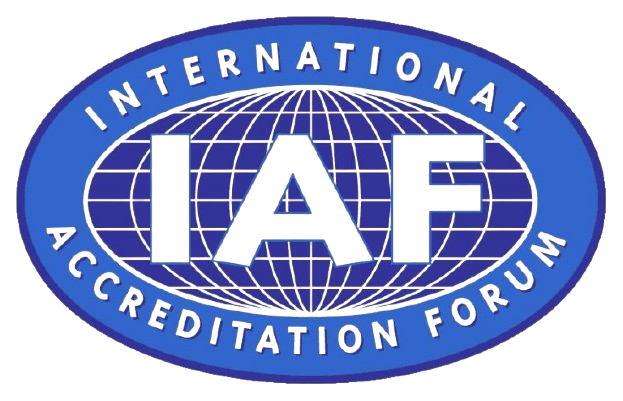

ISO 22000 Certification serves as a comprehensive standard for food safety management systems (FSMS), helping organizations ensure food safety across the entire supply chain. From farm to fork, ISO 22000 encompasses all aspects of food production, processing, distribution, and consumption. By implementing this standard, companies can mitigate risks, enhance customer confidence, and meet regulatory requirements. Get the Food safety certification.
“Given below is the more detail about the ISO 22000 – FSMS standard and you might be interested learning more about it. Rest of the part you can avail the certification from ICS to get your organizational dream come true by contact us by clicking below button.”
ISO 22000, developed by the International Organization for Standardization (ISO), provides a framework for organizations to implement a robust FSMS. This standard combines the principles of Hazard Analysis and Critical Control Points (HACCP) and includes interactive communication, system management, and prerequisite programs. ISO 22000 emphasizes a proactive approach to food safety, enabling organizations to identify, prevent, and control food safety hazards effectively.
Organizations that implement ISO 22000 demonstrate their commitment to food safety and regulatory compliance. The standard applies to all types of organizations within the food chain, including producers, processors, distributors, and retailers. By adopting ISO 22000, companies can ensure that their products are safe for consumption and meet customer expectations.
ISO 22000 comprises several key components that organizations must address to implement an effective FSMS. These components include:
Reduces the risk of contamination and foodborne illnesses. Enhances consumer confidence and protects public health.
Streamlines processes and eliminates redundancies. Optimizes resource utilization, reduces waste, and lowers operational costs. Increases productivity and profitability.
Demonstrates commitment to food safety and regulatory compliance. Attracts new customers and builds trust with existing ones.
Implementing ISO 22000 involves several steps, starting with a gap analysis to identify areas where current practices fall short of the standard’s requirements. This analysis helps organizations develop an implementation plan that outlines necessary actions, resources, and timelines.
Top management must demonstrate leadership and commitment throughout the implementation process. They need to establish a food safety policy, set objectives, and allocate resources to support the FSMS. Effective communication is crucial to ensure that all employees understand the importance of food safety and their role in achieving certification.
Training and development are integral to successful implementation. Employees at all levels should receive training on ISO 22000 Certification requirements and how they apply to their roles. This training helps build a competent workforce that can effectively contribute to the FSMS.
Organizations may face several challenges during the implementation of ISO 22000. Resistance to change is a common hurdle, as employees may be hesitant to adopt new processes and practices. To address this, organizations should focus on effective change management strategies, including clear communication, training, and employee involvement.
Maintaining compliance with ISO 22000 Certification over time requires ongoing commitment and regular audits. Organizations must establish a robust internal audit process to assess the effectiveness of the FSMS and identify areas for improvement. Continual review and updating of practices ensure alignment with the standard and drive continuous improvement.
Continuous improvement is a core principle of ISO 22000. Organizations that adopt this principle can enhance their food safety performance over time and adapt to changing industry conditions. Continuous improvement involves regularly reviewing and updating processes, setting new objectives and targets, and implementing corrective actions to address any deviations.
The Plan-Do-Check-Act (PDCA) cycle is a common tool used in ISO 22000 to facilitate continuous improvement. This iterative approach helps organizations systematically address food safety issues and implement effective solutions. By fostering a culture of continuous improvement, organizations can achieve long-term food safety and sustainability.
ISO 22000 is applicable to organizations of all sizes and industries within the food chain. For example, food producers can use ISO 22000 to implement good agricultural practices, control contamination risks, and ensure product safety. Food processors can enhance their processes by identifying critical control points and implementing effective monitoring and corrective actions.
Retailers and distributors can also benefit from ISO 22000 Certification by ensuring that they handle and store food products safely. By adopting ISO 22000, organizations can improve their overall food safety performance, gain credibility, and build trust with consumers and regulatory authorities.
ISO 22000 is a powerful tool for organizations committed to food safety management and continuous improvement. By implementing this standard, companies can enhance their food safety performance, comply with regulatory requirements, and gain a competitive edge. Despite the challenges associated with implementation, the benefits of ISO 22000 far outweigh the costs. With a strong commitment to food safety and ongoing improvement, organizations can achieve long-term success and sustainability. Whether you are a food producer, processor, distributor, or retailer, embracing ISO 22000 can transform your food safety management practices and drive your organization towards excellence.

For Quick Contact Leave Your Message We will Contact You Shortly Or Call Us At Given Numbers or Email Addresses. We Love to Deliver Our Efficient Services.
Copyright All Rights Reserved © 2025